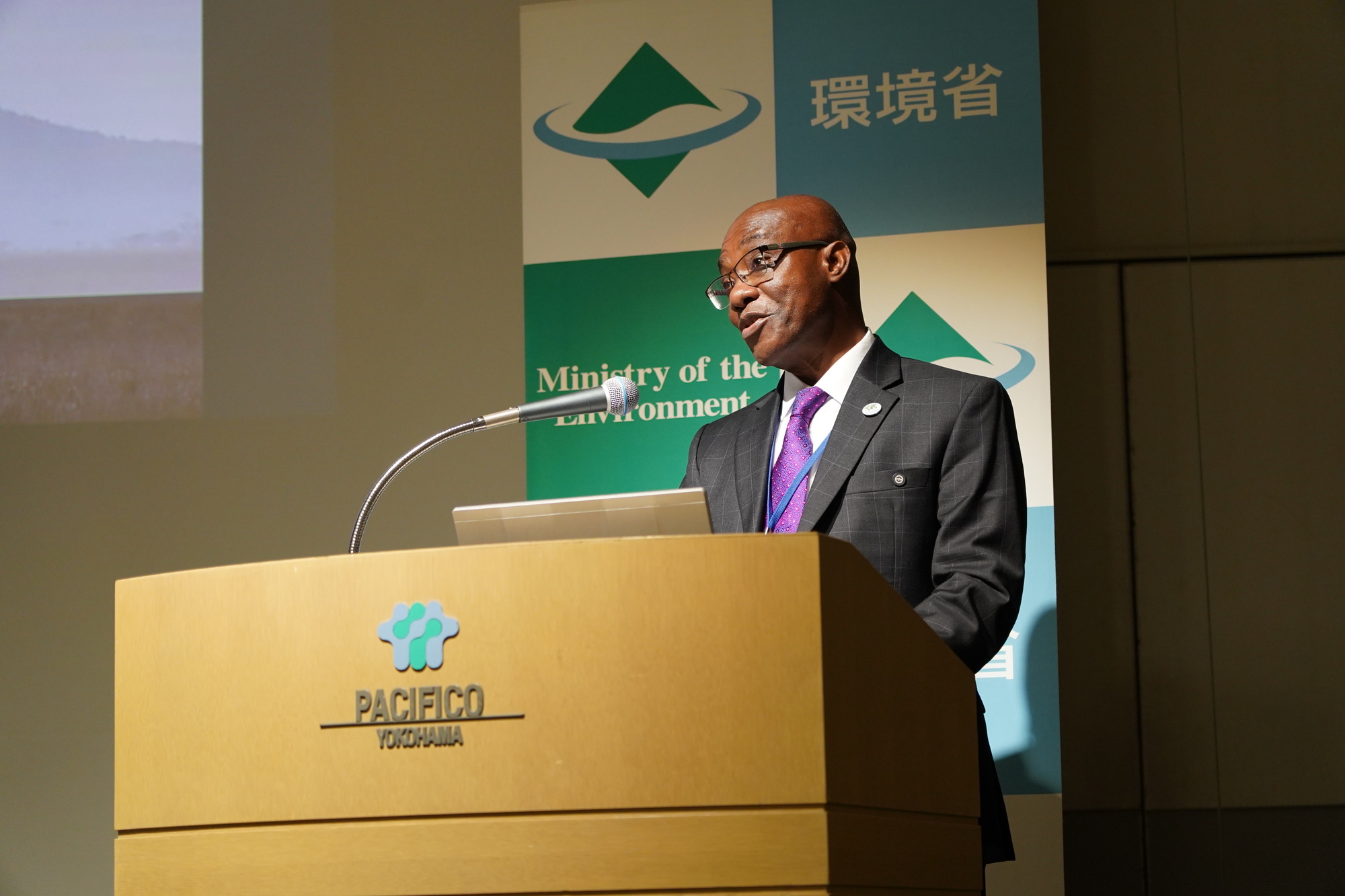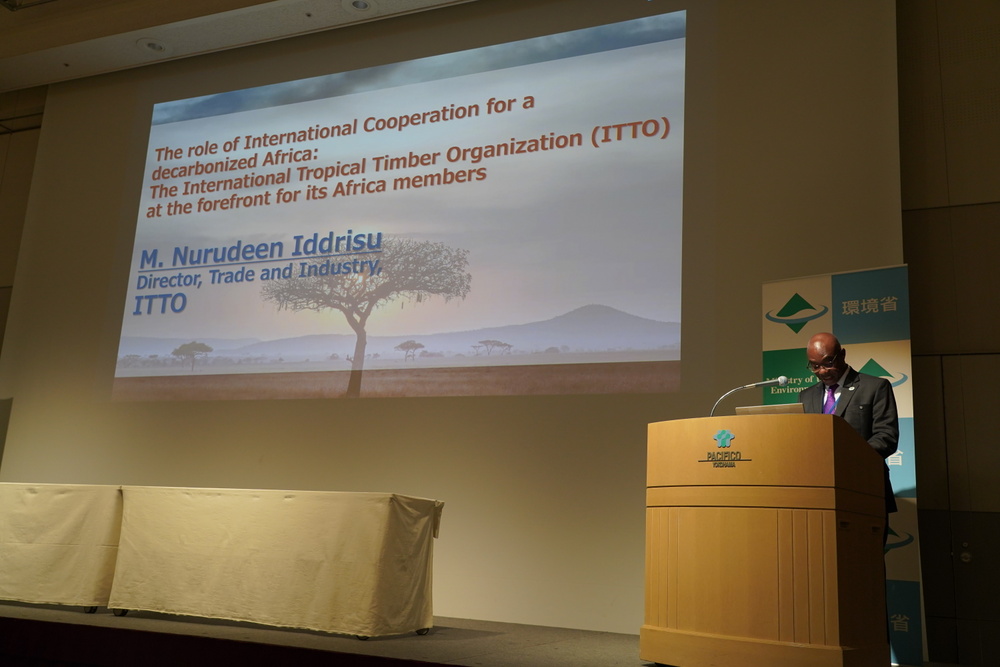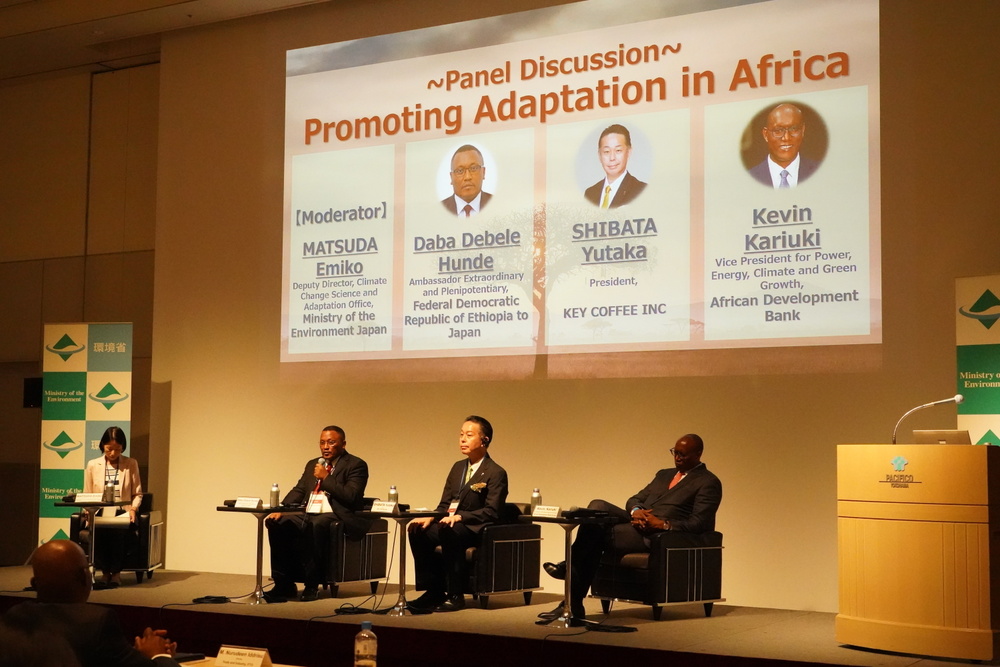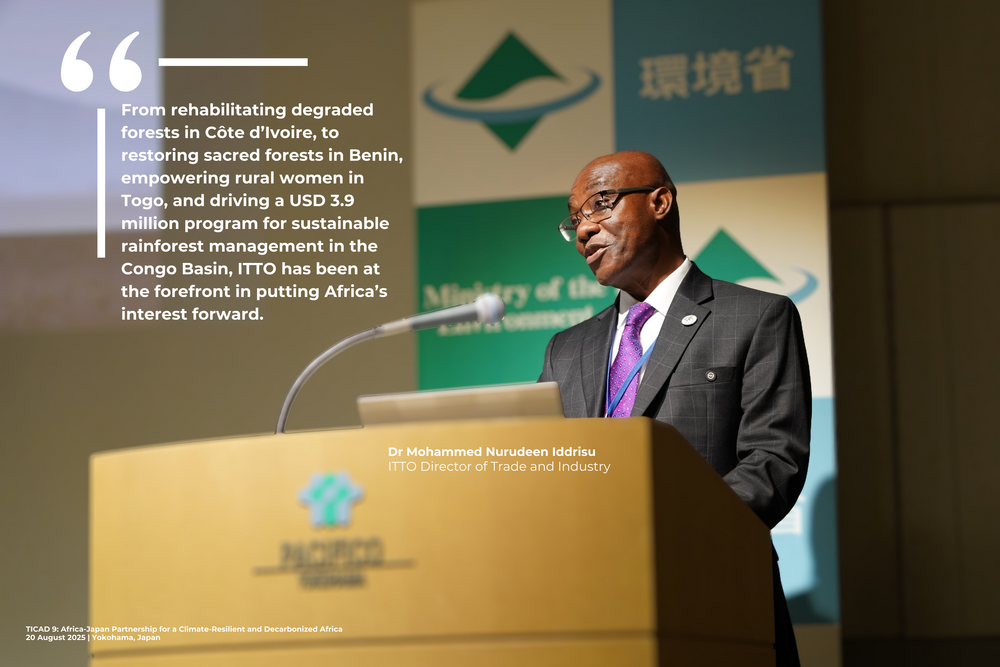TICAD9: Tropical forests key for a climate resilient and decarbonized Africa
22 August 2025, Yokohama

ITTO Director of Trade & Industry Mohammed Nurudeen Iddrisu delivers a keynote address at a partner project event at Tokyo International Conference on African Development 2025 (TICAD9) on 20 August 2025. © Paula Sarigumba/ITTO
Forests remain Africa’s greatest natural ally in the fight against climate change, ITTO Director of Trade & Industry, Mohammed Nurudeen Iddrisu, affirmed during a keynote address at the 9th Tokyo International Conference on African Development (TICAD9).
Africa’s tropical forests, 16% of the world’s global tropical forest area, are critical for resilience and inclusiveness, and support the livelihoods of millions across the continent. However, deforestation and forest degradation remain pressing challenges which undermine climate action and economic growth.
Dr Iddrisu delivered his keynote speech during the TICAD9 partner project event ‘Africa-Japan Partnership for a Climate Resilient and Decarbonized Africa’. He underlined the role of international cooperation in advancing Africa’s decarbonization, with ITTO standing at the forefront of collaborative efforts for its members in Africa.
“Achieving a decarbonized Africa requires international cooperation, community engagement, and unwavering commitment to sustainability,” said Dr Iddrisu.

Commitments to sustainability can be advanced via the adoption of sustainable forest management (SFM) practices promoted by ITTO. During his keynote speech, Dr Iddrisu gave examples of ITTO’s work in Côte d’Ivoire, Benin, Togo, and the Congo Basin where it has been at the forefront of advancing the interests of its Africa member countries.
In Côte d’Ivoire, an ITTO project worked with local women’s associations to restore a 100 hectare area in the Ahua gazetted forest to ensure a continuous supply of wood for charcoal production. This work increased the standard of living for the local community, highlighted the importance of forest conservation, and reconciled short term economic needs with longer term rehabilitation and management priorities.
In Benin, ITTO safeguarded ecologically and culturally significant sacred forests across areas of the country’s south. The project work reforested 68.5 hectares of buffer zones around the sacred forest areas, approved forest management plans developed in a participatory process, and established local management committees to oversee conservation.
ITTO’s research led to the development of a capacity building project for SFM training for forestry personnel in the five countries of the Congo Basin. Following an initial study which concluded that there was a shortage of human resources with the qualifications needed to ensure SFM, a network of 26 forestry and environmental training institutions in Central Africa collaborated via an ITTO project on a training program designed to provide students skills, knowledge, and qualifications needed to implement SFM in forest concessions.
According to Dr Iddrisu, these projects show that “through afforestation, reforestation, and sustainable forest management, Africa can strengthen its resilience while contributing to global mitigation.”
Forests to advance decarbonization efforts
The event also included remarks from Mikazuki Taizō, governor of Japan’s Shiga Prefecture, a panel discussion on a sustainable and equitable future for Africa, and the signing of a statement of intent between Japan’s Ministry of Environment and the African Development Bank.
During the panel discussion, Daba Debele Hunde, the Ambassador of Ethiopia to Japan, provided insights on his country’s Green Legacy Initiative which planted 20 billion tree seedlings over four years with the aim of restoring green landscapes, improving food security, and contributing to economic development.

Ethiopia’s approach demonstrated the cross-functional impacts of forests, with Ambassador Daba remarking that, “creating trees has an impact on climate change, food security, employment, and many things.”
Kevin Kariuki, Vice President at the African Development Bank Group (AfDB), outlined the gaps between real climate financing and the needs of the African continent sharing that, “Africa is the most climate vulnerable region in the world, yet it receives less than 4% of global climate finance.”
Mr Kariuki shared examples of the AfDB’s efforts to co-create solutions that advance Africa’s climate agenda, including the Great Green Wall initiative, which combats desertification through restoration of degraded landscapes in the Sahel region.
Forests at the center of the efforts for climate resilience
As a multilateral forum bringing together stakeholders from international organizations, partner countries, the private sector, and civil society, TICAD is an occasion to further advance the development of the African continent through global support and finance.
With strong ties to both Japan and Africa, ITTO has an important role in galvanizing international cooperation to reduce carbon emissions while supporting economic growth through sustainable forest management.
As Dr. Iddrisu concluded, “TICAD provides a unique platform for African and Japanese leaders, alongside the private sector and non-profit entities, to build these partnerships for a climate-resilient and decarbonized future.”
